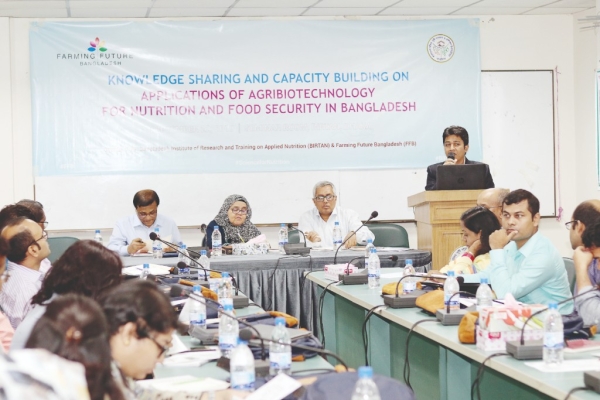
The training, titled 'Knowledge Sharing and Capacity Building on Applications of Agri-biotechnology for Nutrition and Food Security,' was hosted in collaboration with the Bangladesh Institute of Research and Training on Applied Nutrition (BIRTAN)
With an aim to raise awareness of agri-biotechnology among the nutrition and medical communities, Farming Future Bangladesh (FFB) organized a training on the applications of agri-biotechnology in ensuring nutrition and food security in Dhaka on Sunday.
The training, titled “Knowledge Sharing and Capacity Building on Applications of Agri-biotechnology for Nutrition and Food Security”, was hosted in collaboration with the Bangladesh Institute of Research and Training on Applied Nutrition (BIRTAN) at the latter's office, said a press release.
Attendees included, among others, nutrition experts of BIRTAN, representatives of the medical community, and prominent scientists and officials working in the agriculture sector.
Emphasizing the importance of genetically modified (GM) crops in boosting the nutritional content of the staple foods, Zharna Begum, additional secretary and executive director, BIRTAN said, “We need more efforts like this to make people aware of the scopes and benefits of agricultural biotechnology. GM crops can make a significant impact on meeting nutritional needs of the mass people.”
“We should invest more resources in knowledge sharing and capacity building programs engaging the key stakeholders to improve our agriculture sector,” said Md Abdur Rouf, additional secretary, Ministry of Agriculture.
Over the past few decades, agricultural biotechnology has helped improve food quality, quantity and production costs.
Biotechnology contributes to both environmental and economic sustainability.
Social acceptance is a crucial factor when it comes to successfully implement the applications of agri-biotechnology, and the nutrition and medical community can make big contributions to achieving that acceptance.


